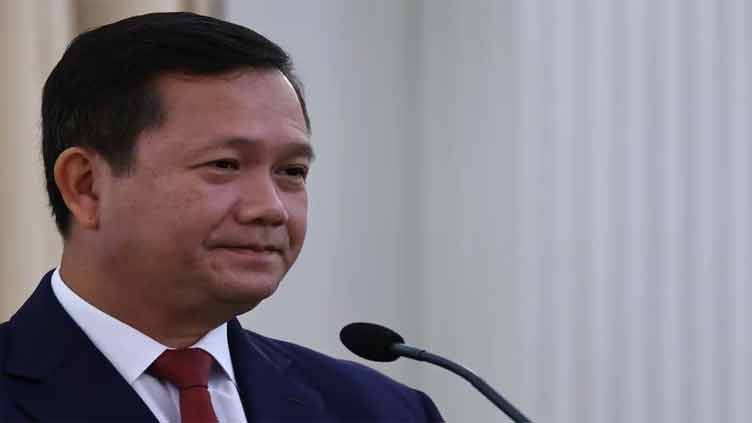Cambodia PM thanks Thailand for thwarting 'interference' after arrest of activists

World
Thailand has detained three Cambodian activists and their families
BANGKOK (Reuters) - Cambodia's Prime Minister Hun Manet on Wednesday expressed gratitude to his Thai counterpart for not allowing Thailand to be used by his opponents to "interfere" with his country's affairs, days after a group of activists was arrested.
The remarks follow Thailand's detention last week of three Cambodian activists and their families, who human rights groups say were recognised by the United Nations as refugees.
International pressure has been building on Hun Manet to end a years-long crackdown initiated by his father and predecessor, Hun Sen, which virtually wiped out domestic opposition to their ruling Cambodian People's Party.
The British and American-educated Hun Manet took power in Cambodia last year in a landmark succession from his strongman father, whose nearly four-decade rule was characterised by rapid economic growth and development alongside a stifling of free speech and brutal suppression of his opponents.
"Thanks for reaffirming your support and not allowing Thai territory to be used for any activities for interference in Cambodian internal politics," Hun Manet told a joint press conference.
"This forms mutual respect and benefit between our two countries."
/cloudfront-us-east-2.images.arcpublishing.com/reuters/HQZSH27GJBOW3HMKG5D3QDRPYQ.jpg)
Thai Prime Minister Srettha Thavisin gave his commitment to Hun Manet that his country would not allow people to perpetrate "harmful activities" against neighbours.
"We will strictly enforce our laws and policies in this respect," he added.
The New York-based Human Rights Watch last week urged Thailand not deport the detainees or bow to Cambodian pressure to go after refugees or its detractors.
"Hun Manet is proving to be the same kind of human rights abusing dictator that his father was, and Thailand should not cooperate with his expanding transnational repression efforts," its Asia deputy director Phil Robertson said in a statement.


